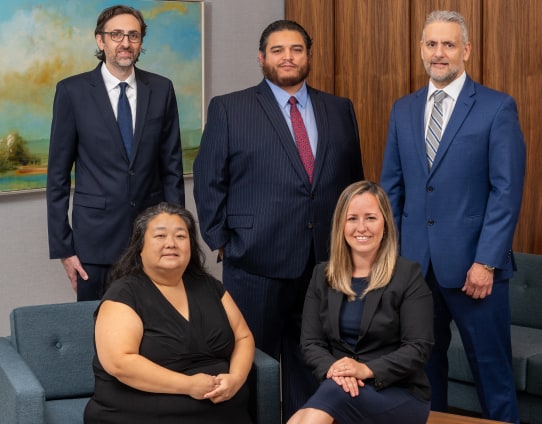Maryland Workers’ Compensation: A Brief Guide to Available Benefits in Maryland
Maryland’s Workers’ Compensation Act provides a no-fault system, allowing employees to receive compensation for injuries “arising out of and in the course of employment.” This means you don’t need to prove your employer was at fault to receive benefits. However, in most cases, if you are injured at work, Workers’ Compensation will be the exclusive remedy in Maryland. Thu, your ability to sue your employer for negligence will generally be very limited. Thus, it is crucial to understand your rights and the benefits available under this act, including medical expenses and various disability benefits.
- Eligibility and Coverage
To be eligible for Workers’ Compensation benefits in Maryland, you must be an employee injured during your employment. The law covers both accidental injuries and occupational diseases, ensuring support for temporary and permanent disabilities, as well as death benefits for dependents.
- Types of Benefits
An injured employee who qualifies for benefits will usually be entitled to one or more of the following:
- Temporary Total Disability (TTD): Compensation for employees unable to work temporarily, paid at two-thirds of their average weekly wage until maximum medical improvement is reached.
- Permanent Total Disability (PTD): For severe injuries preventing any work, benefits are paid at two-thirds of the weekly wage for life, with adjustments for improved conditions.
- Temporary Partial Disability (TPD): For employees returning to work at reduced capacity, benefits cover half the difference between previous and current wages.
- Permanent Partial Disability (PPD): For permanent injuries, compensation varies by the severity and body part affected, with a minimum weekly rate for those eligible.
- Death Benefits: Dependents of employees who die from work-related injuries receive benefits based on the worker’s average weekly wage, subject to limitations and conditions.
- Vocational Rehabilitation: where the injury is serious enough to disrupt the claimant’s ability to resume working in their industry or trade, the claimant may be eligible to obtain vocational rehabilitation benefits to train them to do different work, and/or to help them find a new position in a new field of work which can accommodate their disabilities.
Filing a Claim
To pursue a claim, timely notification and adherence to procedural requirements are critical. Employees must generally notify their employer within 10 days of the injury and file a claim with the Maryland Workers’ Compensation Commission within 60 days. However, the Maryland Statute of Limitations for these types of claims is typically two years from the date of accident. In most cases, the employee can still pursue the claim, even if notice was not provided to the employer within 60 days, so long as the claim is asserted within two years of the injury date, and there is no prejudice to the employer by the delay in the filing of the claim. Nevertheless, delays can jeopardize your claim, and so it is best to act promptly following the injury.
Why Legal Representation Matters
Navigating workers’ compensation claims can be complex, especially when facing insurance company challenges, doctors hired by the employer’s insurance. You may also be facing reduced pay.
Professional legal representation can help you ensure your rights are protected and maximize your benefits. An attorney can help with claim filing, meeting deadlines, and if necessary, making sure the employer honors its duties to you, helping you secure appropriate medical treatment, or second opinions from medical experts, as as well pursue compensation awards on your behalf.
In summary, the Maryland’s Workers’ Compensation system offers vital protection for employees injured on the job. Understanding your rights and the benefits available is the first step toward securing the support you need for recovery and return to work. For detailed assistance and to ensure your claim is handled correctly, consider consulting with a workers’ compensation attorney.
If you would like a free consultation with one of our Workers’ Compensation Attorneys, please contact us today.
By Justin Katz, February 22, 2024


